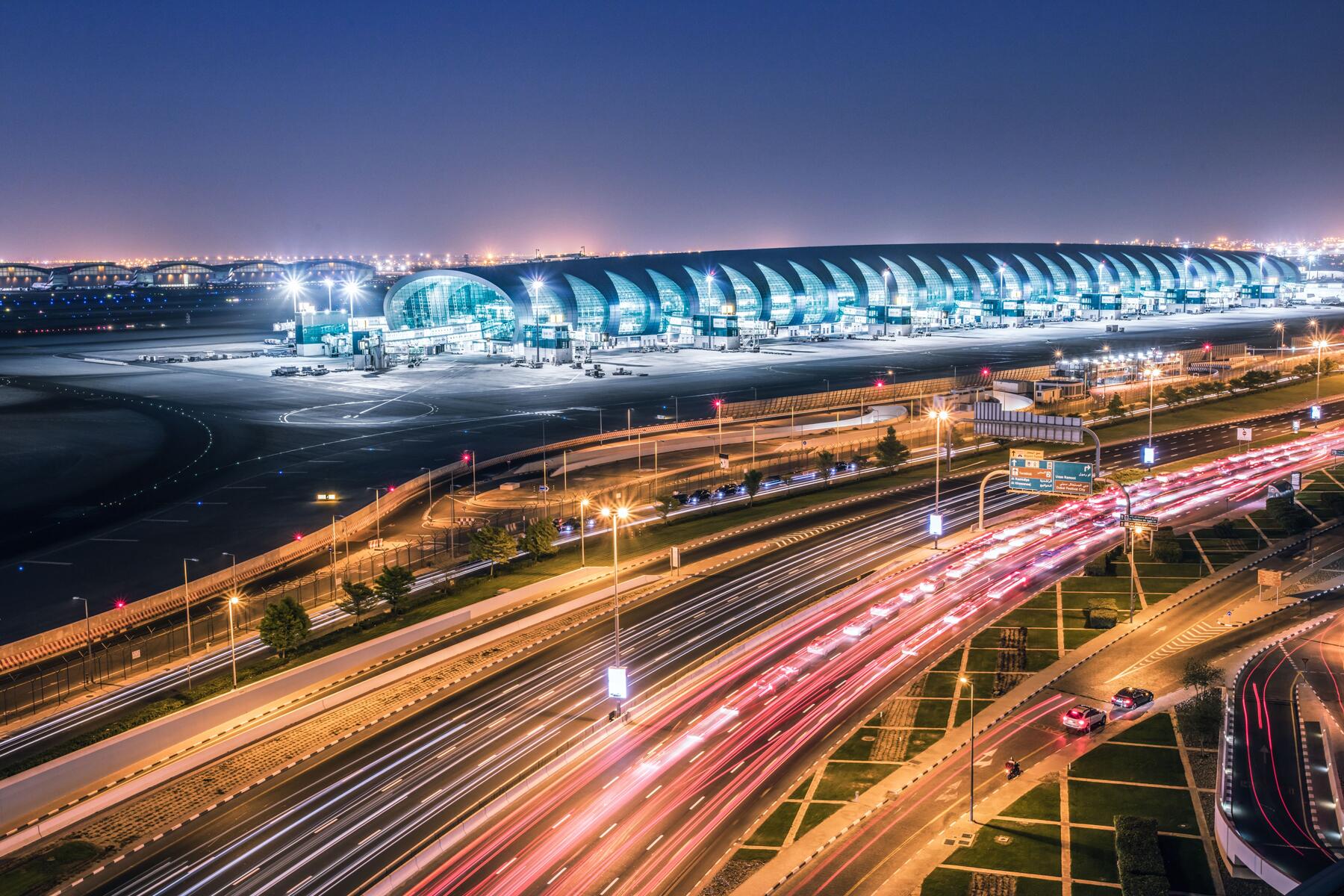Nick is a White man with an American passport and Global Entry status. Fatemeh is originally from Iran but now lives in Mexico City, where she has dual citizenship. How different can travel be for Nick and Fatemeh? The answer is: very different.
It’s no secret that we live in a segregated and hierarchical world. The experiences we each go through differ greatly depending on factors like our skin color, nationality, gender, economic class, and so on. While most of us know how these distinctions can hinder or bolster one’s relation to employment, education, housing, or the police, many people don’t realize how they impact the simple act of getting on and off a plane.
Buy the plane ticket and board the aircraft—it’s as simple as that, right? For many travelers, it’s not that easy. Travel privilege is a very real aspect of our society, one that can vastly restrict a person’s freedom of movement based solely on something as random as to where they were born. To explore this issue, let’s take a look at how the travel experiences of one couple—she from Iran and he from the United States—diverge.
The Ease of Traveling as a White American Man
For Nick, travel is almost always free of anything but the most predictable stresses. Sure, in the era of COVID, he has to wear a mask and adhere to other safety protocols, but that’s more or less where his discomfort ends. Only on the rarest of occasions does Nick get held up at security, and he was once even allowed to circumvent it entirely when he was running late for a flight.
Recommended Fodor’s Video

Even waiting in line (a hallmark of the airport experience) impacts him less than many other travelers. As a member of the Global Entry Program, Nick has breezed through the Customs line upon entry in the United States. When abroad, there are only a handful of countries where he has to acquire a special visa, and usually, he can obtain these upon arrival. In the end, the worst that can be said about Nick’s travel experience is that it tends to be rather dull and predictable. Comparatively speaking, that’s pretty great.
The Challenges of Traveling as an Iranian Woman
For Fatemeh, however, travel is exponentially more difficult, expensive, and stressful. Since immigrating from Iran to Mexico a decade ago, Fatemeh has dealt with a constant imposition of barriers limiting her movement. Every trip abroad has been a nightmare of uncertainty.
After a decade of struggle, Fatemeh recently (and finally) became a naturalized Mexican citizen and received her Mexican passport. Immediately after that, she planned to travel to Iran to visit her family after three years of forced separation due to “complications” in her citizenship application. Hoping to have a more laid-back travel experience thanks to her new Mexican passport, she embarked on what turned out to be one of the most challenging trips of her life.
Spontaneity is almost nonexistent in an Iranian’s travel book. Visa application processes at embassies need to be considered as early as 1-6 months prior to a trip, and those visas aren’t cheap or assured. Over the years, while traveling between Mexico and Iran, Fatemeh has spent thousands of dollars on transit visas through Europe ($100 per visa on average), while tourist visas cost even more. There’s always the possibility that Fatemeh will file and pay for a visa, only to be denied entry.
On her most recent trip, Fatemeh traveled for the first time without a European transit visa thanks to her new status as Mexican. She was, however, concerned that she would have to deal with airport or airline staff once they noticed the “place of birth” in her new Mexican passport—an origin that tends to elicit racist reactions. This fear plagued her every step of the way.
What’s more, Fatemeh’s travel was further complicated because it is virtually impossible for Iranians to acquire an American visa, meaning that she always has to choose flights that transit through Europe or Canada. Coming from Mexico, this increases the cost of her ticket by several hundred dollars automatically since flights with layovers in the US tend to be cheaper. Even now, with a Mexican passport, she still can’t get a US visa. This means virtually every trip costs more and takes longer. On her most recent journey, Fatemeh took an 11-hour flight from Mexico City to Madrid, only to layover in Madrid for 20 hours before making the 11-hour trip from Madrid to Istanbul and on to Iran. This itinerary would prove daunting for even the most seasoned traveler, but for Fatemeh, a difficult trip was marked by the added challenges of barriers and bigotry.
Confronting Blatant Racism Upon Check-in
Fatemeh’s experience with check-in counters is almost always full of stress and anxiety, especially when airport staff is not empathetic to people of color. This is especially true when you have a typical Iranian last name like Hosseinzadeh.
Starting this particular trip at Aeromexico’s check-in counter, Fatemeh handed her Mexican passport to the attendant, who meticulously flipped through her documents and sized her up. Her large Persian eyes (not to mention her name) gave her Middle Eastern origin away. Next came the inquisition: “You’re not from here! ًWhere are you from originally? Where are you going after Madrid?”
Surprised but desperate to get on the flight, Fatemeh tried to remain calm through the interrogation. After a triple identity check, the attendant declared that Fatemeh wouldn’t be allowed to fly, claiming that her ticket was invalid without explanation. The following hour was lost in Aeromexico’s sales office answering the staff’s questions. By the time she was “approved,” the check-in counters were closed, and she was told that she’d have to lug her three heavy bags to the gate.
After dragging her bags to security, her heart sank when they became suspicious of a blender that she’d packed as a gift for her mother. “Please!” Fatemeh pleaded. “It’s for my mom. Iran’s under international embargo, and quality electronics cannot be imported, so I have to bring them in myself.” The security officers stared at her dispassionately, but after receiving word from Aeromexico explaining that it would be checked at the gate, they allowed her to take the worrisome blender through.
As she dragged the three bags to the gate, she suddenly remembered that she hadn’t changed her pesos. Before she had a chance to compose herself after the prolonged check-in and security, Fatemeh hurried to a money exchange. Wondering why she would not just use her credit or debit card in Iran? The answer is simple: sanctions. For decades, Iranian banks have been cut from the international banking system, depriving Iranian citizens or tourists of their right to make international transactions. Had she not changed her pesos in that lounge, she would have been penniless in Iran with no access to her bank account.
At this point, Fatemeh was running to make up for all the delays and was drenched with sweat. Her body ached with exertion, and her heart hurt with embarrassment and offense, and she hadn’t even boarded the first flight yet.
A 20-Hour Layover from Hell
Once in Madrid, where she had a full day’s layover, suspicious security guards wouldn’t allow Fatemeh to pick up the largest of her gate-checked suitcases because to do so would require her to go through passport control (something that her travel status would not allow). Her tickets spanned two different airlines due to the complications of reaching Iran, and it was unclear whether one carrier would transfer the bag to the next. She could see the bag downstairs from where she was held but could not get her hands on it, and the airline staff was evasive about providing help.
Suddenly she was told that she would be moved to a different terminal for her flight to Istanbul the following day but that she would not be allowed to collect and recheck her bag. At this point, whether or not she would ever see said bag again was very much up in the air.

It took them several hours to transfer her to the next terminal for reasons that never made sense. All this time, Fatemeh was being watched by security to ensure that she wouldn’t set foot on Spanish soil and—God forbid—request asylum. That’s just part of the protocol when dealing with people born in Iran, unless they have citizenship and a passport from a privileged country like the United States, Canada, or the United Kingdom. Mexican passports often aren’t very convincing to suspicious customs officers.
Ordered to remain on the terminal’s first floor, which was freezing cold, Fatemeh was not allowed to go to the heated second floor. As she watched European passengers come and go as they pleased, she wrapped herself in the Mexican blankets she’d brought along to endure the shivering cold. Finally, after several freezing hours, an employee of the airport’s information office fetched her and brought her upstairs, where she was told that she was not to return downstairs under any circumstances.
“At least you have vending machines and some warmth up here!” she said. She couldn’t have been more grateful. At that point, Fatemeh hadn’t had any food or water for hours. The following morning, Fatemeh was directed to an information booth downstairs, where she attempted to sort out the “missing” bag issue. The attendant seemed to be paying little heed to her plight, and she watched him give the same lack of consideration to other POC travelers. He did, however, attend kindly to some white passengers.
Eventually, with nothing solved, Fatemeh returned to the same cold downstairs seating she’d been relegated to the previous day, and where she now remained for another three hours, dozing off but jumping up every few minutes, scared to miss her flight. To make matters worse, this entire time, she was waiting on her boarding pass for the second leg of her journey, which had been withheld for vague reasons that were never adequately explained. Finally, after begging various airline staff from both carriers and making several calls, one woman took pity on Fatemeh and managed to get her on the flight to Istanbul. After two solid days of travel, she made it to Iran.
A COVID Summer in Iran
By the luck of lousy timing, Fatemeh happened to leave Mexico just as the country was ramping up its vaccination program. In Iran, the COVID situation was grim. Iranian authorities had prohibited the US- and UK-produced vaccines (they have since approved the Johnson & Johnson variety), and this—along with general mismanagement of the situation—had pushed the death rate to over 600 people a day. Fatemeh watched via social media as the world returned to some semblance of normality as a result of vaccinations, while her people in Iran dreamed of having access to any vaccine at all.
Unsurprisingly, Fatemeh and her family contracted the virus. For several weeks they feared for her terribly ill parents, all the while receiving messages from Iranian friends and family who were losing loved ones every day. Lack of vaccines and a shortage of medical supplies meant self-isolating for almost her entire stay in Iran, while her partner in the US traveled and visited friends and family. At least by then, she’d received the “missing” bag; a small consolation.
Even once she recovered and was preparing to return to Mexico, there was a fear that she would be unable to leave Iran at all. Traveling in and out of Iran is difficult, but many countries were beginning to place further restrictions on Iranian travelers due to the Iranian government’s poor handling of the virus and the sky-high infection rate that resulted.
In the end, Fatemeh was able to get out, but the hardship and anxiety weren’t over. Just as she was preparing to leave for Mexico, the Taliban completed its takeover of Afghanistan. This tragedy managed to impact Fatemeh’s travel even though she was neither Afghan nor in Afghanistan.
As she arrived for a day-long layover in Istanbul, Fatemeh was stopped at passport control in the only airport in the world where she had never faced interrogation (since Turkey and Iran are close allies). As the scrutiny escalated, she kept telling herself that the Mexican passport would get her through. This was, however, bad timing to be a woman traveling with her name.
Officer: “Do you have another ID?”
Fatemeh: “Yes, Iranian. But what do you need it for? I’m traveling to Mexico.”
Officer: “Where are you headed?”
Fatemeh: “Home! To Mexico City. I was visiting family in Iran.”
Officer: “Where were you before Mexico?”
Fatemeh: “Mexico…I live there.”
Officer: “What ID did you use to enter Turkey?”
Fatemeh: “Umm, I think the Iranian passport.”
Officer: “Where were you before Turkey?”
Fatemeh: “Iran! I was visiting my family, and now I’m going back home. What are these questions for? I’m a citizen of Iran and Mexico. What’s the problem?”
She kept asking the suspicious officers what the problem was, to no avail. She was exhausted, sore, and her bags were heavy. At least this time, she had water. Fatemeh took a sip, and as she raised her head, one of the officers suddenly snapped a photo of her and then rushed from the checkpoint, leaving her to face further questioning from his increasingly aggressive colleagues. It became clear that there was no point in asking questions of her own, so Fatemeh commenced to pace in silence. The officers continued their meticulous examination of both her Iranian and Mexican passports.
Eventually, she was sent to the immigration police booth, where, even though her boarding pass was approved, she was told she would not be allowed to fly. It wasn’t long before this decision was overturned, but by the time she was begrudgingly passed through security, Fatemeh was sure that she wouldn’t be allowed to leave and would be sent back to Iran.
“You see,” one officer explained finally. “We’ve had many Afghans trying to go through Turkey to Mexico on fake Mexican passports recently, and we thought you were one!” Fatemeh didn’t respond. She felt humiliated but kept thinking about all the Afghans who wished they were in her shoes. As she took back her passports and made her way forward, she clung to her tears and what little pride she had left.
The intensive screening was contained at the boarding gate, with passports being checked and double-checked. This time Fatemeh wasn’t overly scrutinized, but not everyone was so lucky. As she made her way onto the plane, Fatemeh saw that there were some people who looked like her not allowed to board.
The Arbitrary Nature of Travel Privilege
Why is Nick’s travel experience so breezy? Because of the fortunate circumstances of his birth. And why is travel such a nightmare for Fatemeh? Not because of anything she’s done or said. She’s being punished because she happened to have been born in Iran and has dark skin, big eyes, and a Middle Eastern name.
While, fundamentally, governments are to blame—in this case, the Iranian and American governments—ultimately, many of the barriers faced by people in Fatemeh’s position are either built or torn down by individuals making decisions on the spot. The policy sets the stage, but it’s the individual actors who choose to act out of compassion or racism.
The long-term solutions are political, but in the short term, the power to change things for the better might be in the personnel office. Perhaps a consideration for these matters should be built into airport and airline hiring and training practices. Let’s put it this way: many people in this world could enjoy their right to freely move between countries if only we had a better grasp of travel privilege.




Two things: 1 - this article has too much personally identifiable information (full name, dual citizenship, recent citizenship status, recent travel history). If you're not going to use a pseudonym at least delete her last name.
2 - As a POC woman, there are too many mentions of "large dark eyes," "large Persian eyes" etc. Not sure if she's your girlfriend and you love her eyes or just have a thing for eyes in general, but it gives a weird tone to the article.
Just to let you know, she co-wrote the piece (and is being added to the byline now) and those descriptions are all hers.